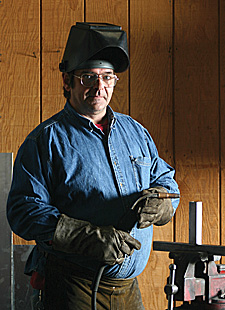 New research has backed Archbishop Peter Jensen's warnings about the negative impact of Federal Government's IR reforms, which are set to become law within two weeks.
New research has backed Archbishop Peter Jensen's warnings about the negative impact of Federal Government's IR reforms, which are set to become law within two weeks.
Dr Jensen's concern that the Industrial Relations overhaul will damage Australian family life has been given a boost, with new research showing a link between set-term contracts and a range of poor marital outcomes.
Contract workers are overwhelmingly the worst affected employee group with 57.2 per cent saying they are "often' or "always' experience home/work conflict.
In comparison 45.7 per cent of permanent full-time workers, 44 per cent of self-employed, 43.8 per cent of permanent part-time workers, and 37.1 per cent of casuals experience an equivalent level of home/work conflict.
The findings were presented by Sydney Anglican researchers at the God and the Family Conference at New College, the Anglican residence at the University of New South Wales.
"Set-term contractors are ordinary workers - we are not talking about high-income earning managers and CEOs here," says researcher Jeremy Halcrow, who spoke at the presentation.
"Only 14 per cent of set-term contractors in our survey sample were in the "employer' category. The vast majority were ordinary employees spread right across office workers, retail workers, manual workers and those in trades."
The Government's own analysis of Australian Workplace Agreements (AWAs) shows that part-time workers on AWAs reported higher levels of home/work conflict, while young employees had dramatically higher levels of home and work conflict linked to more unfavourable work conditions.
The new research builds on initial findings from the 2002-2003 Wellbeing and Security Survey (WSS) released last year by Edith Cowan University, NCLS Research and Anglicare.
The research found links between high levels of home/work conflict and poor marriages, with nearly half of Australians (45 per cent) reporting that work "always' or "often' conflicts with their home life.
"It is the breadth of the connection that makes it very hard to dismiss the significance of the link between home/work conflict and unhealthy marriages," says Dr Andrew Cameron, lecturer in ethics at Moore College and Director of the Social Issues Executive.
Dr Cameron is co-author of a research paper titled Home/Work Conflict and Relational Being that was launched as part of the conference presentation on the weekend.
"We hope our findings make a positive contribution to the debate over the Federal Government's industrial relations reforms. Evidence that workplace pressure is already harming Australian marriages should be of great public interest as we approach the next Federal election."
The church also needs to take the lead in promoting healthy family life, says the Master of New College, Professor Trevor Cairney.
At the conference, Professor Cairney emphasised the important role of fathers in family life, saying churches need to be there for fathers who find it difficult to strike a healthy balance between home and work.
"Sixty eight per cent of mothers with dependent children are seeking work or working," Professor Cairney told delegates, adding that Australians work some of the longest working hours in the developed world.
"A key step for any father is to examine [how they] balance God, family, work, other relationships and leisure," he said.
"It is critical that Christians take the lead… We don't want to leave it to a single political party, Family First, although I applaud them for what they are doing."
The research found that strong Christians are no better off than non-believers in experiencing home/work conflict and the resulting marital discord.
The God and the Family Conference was hosted by CASE, the Centre for Apologetic Scholarship and Education at New College.
Other speakers at the conference included Dr Patricia Weerakoon, sexual health academic at the University of Sydney and Director of CASE, Dr Greg Clarke.
For more information on the centre’s courses and events visit the CASE website.






















